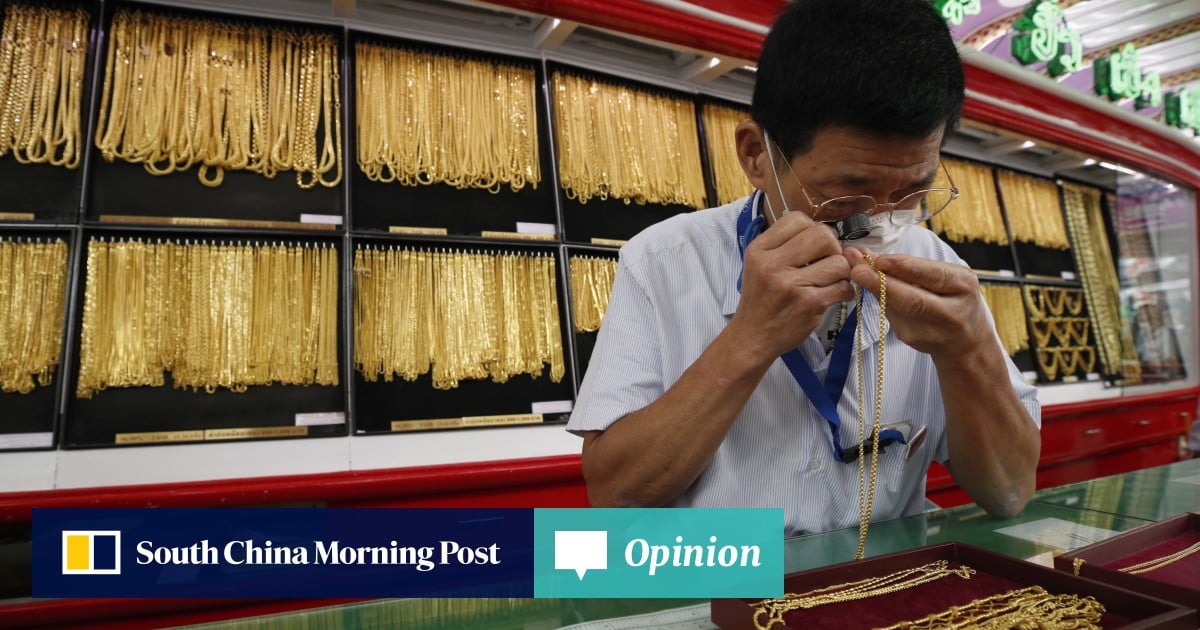Watching the US empire collapse

…from inside the US empire

 watching the US empire collapse within my lifetime.
watching the US empire collapse within my lifetime.
Nothing will come of this to challenge US dollar hegemony until an alternative emerges. China is unwilling to make RMB a global alternative reserve currency for a number of reasons that many commenters here, myself included, have outlined ad nauseum, mainly that the current neoliberal order actually serves China quite well and they don’t want to rock the boat. The only other somewhat viable alternative is the euro, but until the EU manages to cobble together a unified bond market instead of its fragmented mess that’s still a pipe dream. So whilst this means the dollar is growing weaker and people are pouring into gold, there’s no end to the misery in sight.
What is interesting is even European central banks, mainly Italy and Germany (both of whom have huge gold reserves, by some counts third and fourth in the world after China and the US) are mulling taking back their gold from the United States. Right now they store almost half of their reserves in the United States. The FT has a good article on that here: https://archive.is/Nig8k If these EU countries manage to actually do that though, the Atlantic relationship is about to get a bit rocky.
I really have no idea where the notion that a reserve currency is necessary and that dollar will remain central to the global economy until an alternative emerges comes from. There doesn’t need to be a new reserve currency for the dollar hegemony to end. What’s going to continue happening is that countries will increase bilateral trade using currency swaps, and commodities will act as value stores instead of the dollar. It’s also worth noting that China’s CIPS has already surpassed SWIFT in single-day transaction volume.
The dollar is going to remain central to the global economy until either China offers a replacement for a massive consumer market for other countries to dump their excess production into or the American empire is not longer capable of threatening other countries into using dollars. Also, that article you shared is using a long debunked rumour from a few months ago. SWIFT is still far bigger the CIPS, it processes around ~$35 trillion a day (per https://archive.is/YEWAx), which is far larger than even the figure the article you shared uses as a source (which says that CIPS processed ~$2 trillion in one day). Likewise, that source itself has been disputed by the Chinese central bank, per: https://finance.eastmoney.com/a/202504183381053098.html
昨日,市场有传闻称,当日人民币跨境支付系统(CIPS)的单天交易量出现天量增长,引发社会各界高度关注。今日上午,中国银行相关人士向财联社记者表示,上述网传消息不实。
Another obvious option is a BRICS currency along the lines of Bancor that Keynes suggested which could be backed by a basket of commodities. This would be a far more appealing option because it would ensure that a single country wouldn’t dominate global financial system the way US does today. However, in the short term bilateral swaps work just fine as can be seen at scale in Russia which is cut out of western trade pretty much entirely at this point.
It’s also not clear to me what leverage the US has into threatening countries into using the dollar. The main leverage the US has is its shrinking consumer market. As we already saw with the tariff war, the US can’t throw its weight around like it used to.
And noted regarding the article, but that doesn’t affect my original point that there doesn’t need to be a direct replacement for the dollar for the dollar to fall out of use.
The stock of gold held by central banks worldwide is approaching the historic highs of the post-war Bretton Woods era. Gold reserves, which peaked at 38,000 tonnes in the mid-1960s, rose again to reach 36,000 tonnes in 2024.
Turkey, India and China have been the top buyers, jointly purchasing over 600 tonnes of gold since end-2021. Despite ranking among the top holders in absolute terms with 2,294.5 tonnes of gold, China’s gold made up just under 7 per cent of its total reserves as of April, according to the World Gold Council. Even so, the composition is expected to change further in favour of gold and at the expense of US dollar holdings.
Remember this article? Aparantly, the Chinese government might in actuality own more gold than even the Americans (about 14000 to 15000 tonnes), which would place central bank gold reserves well above the 1960s numbers (38,000 tonnes) vs (50,000 to 51,000 tonnes today). Of course, this depends entirely on how much gold reserves the Chinese government secretly owns, and aparantly, the Chinese army owns gold that it doesn’t have to declare.
Sounds bad





